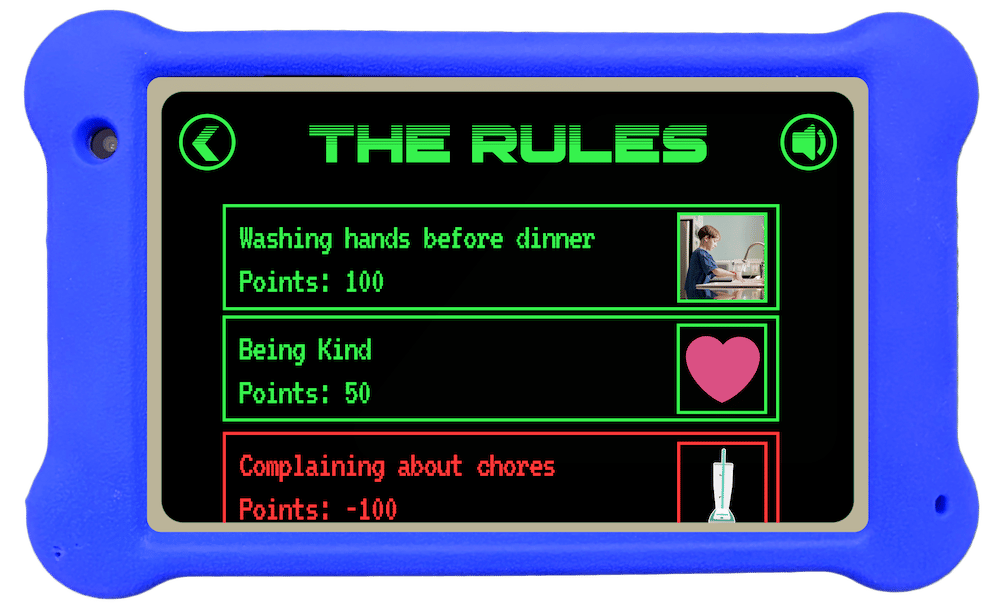Most defiant behavior boils down to a child wanting some freedom and independence. You’ve likely experienced moments when your little one displays less-than-cooperative behavior. This can leave many parents puzzled and worried—does this mean I have a defiant preschooler on my hands? Fear not! Understanding the reasons behind defiance in preschoolers is crucial for developing effective parenting strategies that support their growth and development.
Table of Contents
Your Defiant Preschooler is Learning Independence
The Developmental Stage of Preschoolers Seeking Autonomy and Control
At the age of three or four, children are beginning to discover their sense of self and independence. They’re learning how to make decisions, express opinions, and navigate their surroundings—all essential skills for personal growth! However, this newfound autonomy also comes with challenges as they test boundaries while figuring out where they stand.
How a Defiant Preschooler Can Be a Natural Part of This Growth Process
Navigating your defiant preschooler’s antics? Here’s the scoop: that defiant streak is a normal part of their growing-up process. You see, they’re just testing the waters, figuring out the boundaries and consequences in their little world under your watchful eye.
Now, as parents (and superheroes in disguise), our mission is to guide them in balancing their self-assertion without tipping over into disrespect or unruly behavior. It’s all about deciphering why this defiance is surfacing and, at the same time, encouraging a healthy sense of independence. It’s like cracking a code – one that leads to a confident, responsible kiddo! Remember, every ‘defiant preschooler’ challenge is an opportunity to build a stronger relationship and understanding.

Reinforce Good Behavior
Understanding Positive Reinforcement Techniques (e.g., Praise, Rewards)
Positive reinforcement is great for encouraging desired behaviors in your defiant preschooler. By praising or rewarding good behavior, you are clearly appreciating and valuing them! This can include verbal praise (“Great job sharing with your sibling!”) or tangible rewards like stickers, small treats, or extra playtime.
Read More: Positive Reinforcement Examples
Examples of How To Encourage Desired Behaviors in Defiant Preschoolers
When it comes to reinforcing good behavior in defiant preschoolers, consistency is key—ensure you acknowledge their efforts regularly and genuinely! For example:
- Praise them when they follow instructions without fuss.
- Offer rewards for completing chores or tasks without defiance.
- Acknowledge and appreciate moments of cooperation between siblings.
Be Consistent With Discipline
The Importance of Setting Boundaries and Enforcing Consequences Consistently
Parents, we get it! We’d all prefer to be the cheerleaders for our tiny tots all the time. But, let’s face it, discipline plays a key role, mainly when talking about that defiant preschooler of yours. Laying down clear boundaries and sticking to them is a game-changer.
Doing this teaches your kiddo the significance of playing by the rules and gives them a hands-on lesson about the impact of their choices. Remember, it’s not about being the ‘bad guy’; it’s about teaching your child valuable life lessons in an environment they trust.
Tips for Creating Age-Appropriate Rules and Consequences for Defiant Behavior
- Keep it simple: Craft rules in a language your defiant preschooler can grasp, clearly laying out what is expected of them.
- Stay consistent: Consistency is key. Make sure the same rules are enforced daily to avoid any confusion regarding what’s expected.
- Use appropriate consequences: Make sure that the punishment fits the crime. Going too hard can breed resentment, while being too soft might not drive the lesson home.
- Strive for balance: Parenting is all about balancing act. Being fair yet firm allows you to foster healthy independence in your child, without losing sight of the importance of respect for others.
Tips for Parents on Why Their Preschooler Is Defiant and What To Do About It.
Common Causes Behind a Defiant Preschooler (e.g., Frustration, Lack of Communication Skills)
Defiance in preschoolers can stem from various causes, such as frustration over an inability to express themselves effectively or feeling overwhelmed by situations they can’t control. Understanding these underlying factors helps parents address the root of the issue rather than merely reacting to surface-level behavior.

Strategies For Addressing These Underlying Issues While Promoting Healthy Development
To tackle defiance at its core, consider implementing strategies like:
- Encourage open communication: Establish a safe environment where your defiant preschooler feels comfortable sharing feelings and frustrations.
- Offer support: Show empathy towards their struggles and guide them in finding their own solutions.
- Model appropriate behavior: Children are keen observers. Showcase respectfulness and cooperation in your own actions to help them learn.
Tips for Kids To Learn Independence Without Being Defiant
Encouraging Age-Appropriate Responsibilities That Foster Independence
Help your preschooler develop a sense of independence without resorting to defiance by assigning tasks suitable for their age: think setting the table or sorting laundry! This builds self-confidence while teaching responsibility.
Helping Children Develop Problem-Solving Skills Without Resorting to Defiance.
When faced with challenges, equip your little one with problem-solving techniques instead of fueling defiant reactions; brainstorm potential solutions together or encourage them to think critically about possible outcomes.

Guidance on Balancing Independence With Respectfulness Towards Authority Figures
Teach your child how asserting their autonomy can coexist harmoniously alongside respecting rules set by parents, teachers, or other caregivers. This balance is essential for fostering healthy growth into adulthood!
Goally | Apps That Build Behavior & Life Skills for Kids
Want to keep your child motivated while setting good behavior habits? Goally’s skill-building tablet & suite of therapy apps are designed to celebrate small wins and help your child grow.
Our Rewards app gives kids points for completing daily routines and following “The Rules” on Goally. These points can be redeemed for exciting rewards or time in Goally’s game center. It’s a fun way to reinforce positive behavior and keep them motivated to learn new skills!
Our Behavior Tracker helps you reward your kiddo for specific skills, like “being kind” or “flushing the toilet.”
By setting clear expectations and rewarding their efforts, you foster a positive environment for your child to flourish in their behavioral skills journey.

Give Goally a try on any android, iOS, or Amazon device for as low as $15. Or, choose our distraction-free device (which ONLY has Goally on it) for $149 if you don’t want your kiddo sneaking onto Youtube every few minutes… 😉
Conclusion
In conclusion, dealing with a defiant preschooler may be challenging, but understanding its roots makes it easier to navigate this developmental stage successfully! Remember that patience is key when supporting your child’s journey towards independence—encourage good behavior, be consistent with discipline while creating age-appropriate rules, and promote healthy communication. Doing so will help your defiant preschooler grow into a capable and respectful individual! Stay patient, understanding, and proactive—you’ve got this!
FAQs About a Defiant Preschooler
Why is my preschooler defiant? Defiance in preschoolers is often a part of their routine developmental process. They're exploring boundaries, learning about consequences, and starting to assert their independence.
How can I handle a defiant preschooler? Consistent rules, appropriate consequences, and fostering open communication can help manage defiance. Tools like visual schedules, emotional regulation apps, and reward systems can also be beneficial.
Are visual schedules helpful for a defiant preschooler? Yes, visual schedules can help a defiant preschooler understand and follow routines, promoting consistency and clarity, which are vital in managing defiance.
How can emotional regulation apps help my defiant preschooler? Emotional regulation apps can teach your defiant preschooler how to identify, understand, and manage feelings, improving their response to stressful situations.
Can rewards reduce defiance in preschoolers? Yes, rewards can motivate your preschooler to follow the rules and positively reinforce their good behavior, which can help curb defiant tendencies.
This post was originally published on 04/01/2023. It was updated on 06/06/2023.

Goally
We help parents teach their kids life skills, like doing bedtime and morning independently. Backed by science, we incorporate evidence-based practices and expert-informed designs in all of our apps and content.





